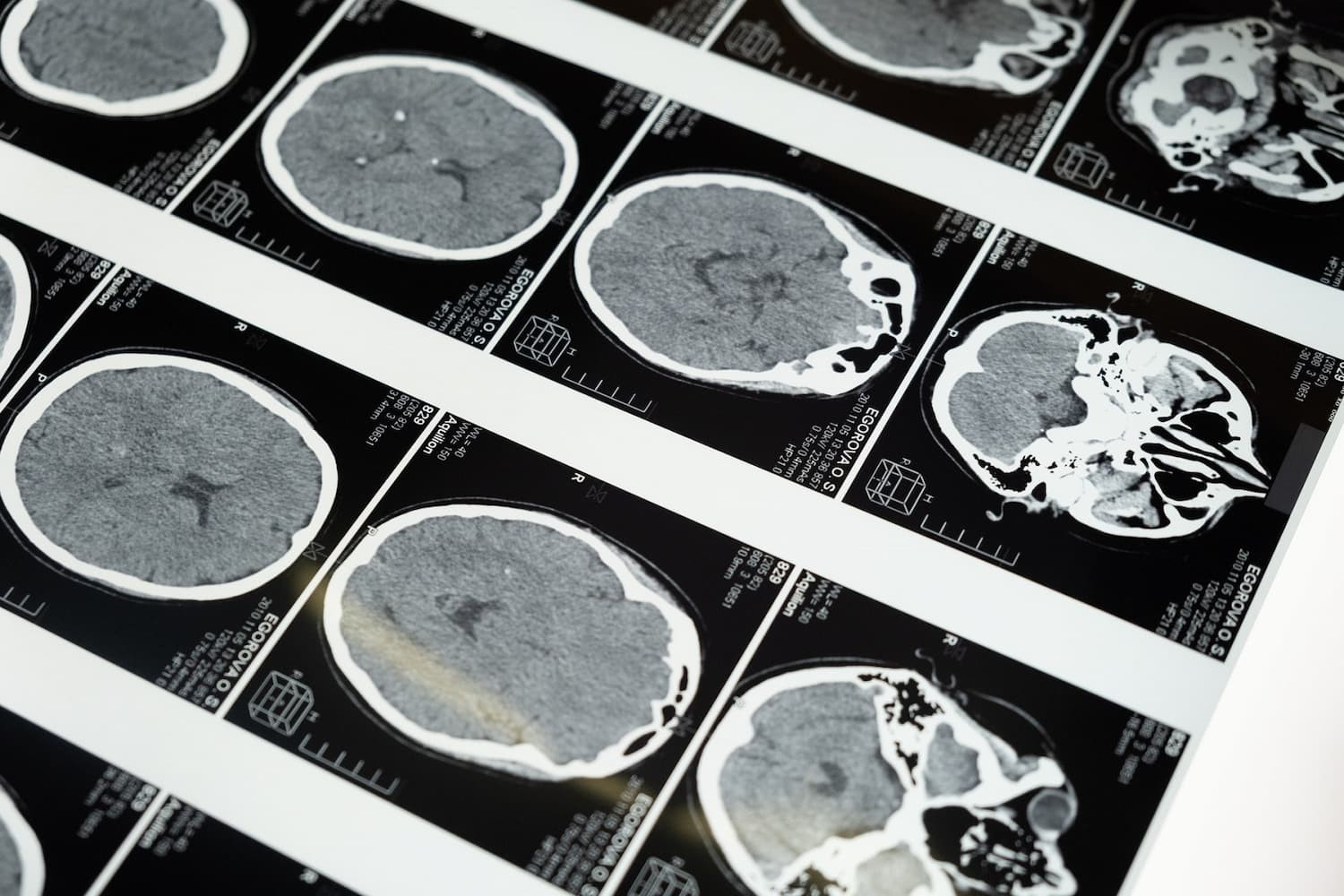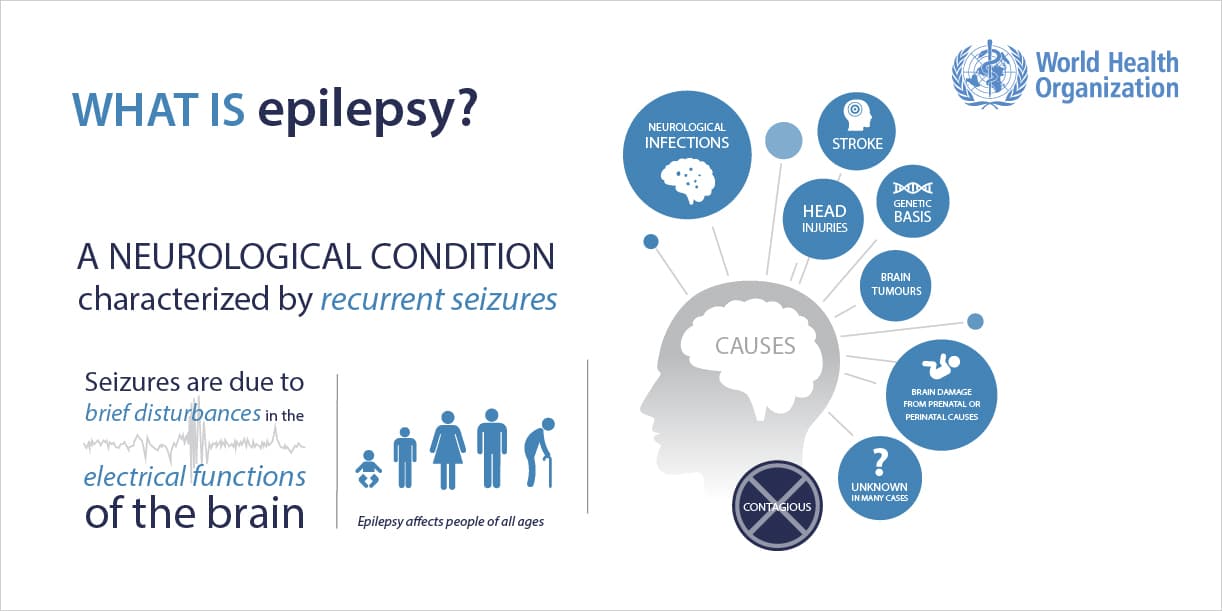
People with epilepsy often feel as if the world around them is spinning or that they're moving in slow motion when they have seizures. Many times, this causes loss of consciousness because their body isn't aware of what's going on around it. Later, after an episode, epilepsy can cause someone to be emotionally off-balance as well because epilepsy causes electrical impulses in the brain to misfire and send signals to other parts of the brain at a much faster rate than usual.
Some people with epilepsy may even experience auras - sensations such as a tingling sensation or a headache - which sometimes precede seizures by twenty minutes or more. This article walks you through the types, causes and symptoms of epilepsy, as well as possible treatments that can help you or someone you care about who has the condition.
What is Epilepsy?
Epilepsy is a neurological condition caused by abnormal brain activity, resulting in uncontrolled seizures and, often, loss of awareness. A seizure is an uncontrolled electrical impulse in the brain that causes your muscles to clench up and go into spasms, sometimes causing you to shake or fall down. You might feel nauseous or fatigued for hours after having a seizure.
Source: WHO
Epileptic seizures can take many different forms and are usually episodic in nature. Patients with epilepsy can experience recurrent seizures over the course of their life. Epilepsy has no known cure at this time, but the good news is that it can be managed with the right treatment plan.
Types of Epilepsy
There are several types of epilepsy, depending on a person's seizures and degree of brain abnormality. The common types of seizures include:
Tonic-clonic Seizures
This type of seizure is a hallmark symptom of epilepsy since epileptic attacks may begin with severe convulsions caused by abnormal electrical signals from the brain. If the seizure continues, a person's breathing may be disrupted, leading to raspy or labored exhaling followed by inhaling, known as Cheyne-Stokes respiration. Tonic seizures usually last between one and three minutes.
Absence Seizures
The symptoms of an absence seizure are less dramatic than those observed in tonic-clonic epilepsy, but they can still cause severe impairment. Brief periods of impaired consciousness are accompanied by staring spells during which the individual does not respond to his or her surroundings. During these episodes, which can occur multiple times per day, a person's brain function with respect to their body movement remains intact.
Myoclonic Seizures
A myoclonic seizure results in sudden contractions of muscles on both sides of the body or on one side of the body only. Myoclonic epilepsy produces a combination of symptoms, including lack of awareness, jerking movements or convulsions followed by unconsciousness or tiredness after the seizure.
Focal Seizures
Also known as partial seizures, focal epilepsy is the least common type of epilepsy that affects 2% to 5% of people with epilepsy. It results from abnormal electrical activity in one of the brain regions or brain cells. The symptoms of this type of epilepsy vary. Some people may experience seizure activity without losing consciousness, while others may be disoriented and not be completely aware of their surroundings.
Generalized Seizures
This seizure type involves both sides of the brain. People who have epilepsy have repeated seizures during their lifetime. About 70% of epilepsy cases are primary generalized epilepsy, meaning that all people with epilepsy have had generalized seizures from a first seizure or else they started as partial seizures and became generalized over time.
Common Symptoms of Epilepsy

People with epilepsy are often aware of the warning signs before they experience seizures. Although the condition is characterized primarily by seizures, people with epilepsy can also exhibit abnormal behaviour or intense emotions such as anxiety or depression. Typical signs and symptoms that can affect the sufferer's quality of life include:
- Loss of consciousness
- Falling to the ground
- A staring spell
- Shaking or tremors
- Stiffening of muscles
- Confusion and wandering around aimlessly
- Mumbling
- Lack of sleep
There are also less common epilepsy types which display other various symptoms such as laughing unprovokedly and swallowing excessively. Though epilepsy may seem like a very scary disorder, there are many people who live with epilepsy well into adulthood.
People who have epilepsy often adapt to their symptoms and become well-versed in epilepsy management. This means they are able to responsibly take anti-seizure medications, know how to behave during a seizure and go about their everyday life safely. If epilepsy is managed well by the patient themselves or through an epilepsy treatment, seizures should not interfere with their daily activities nor be harmful to self or others.
Causes of Epilepsy
Epilepsy is a neurological condition in which an abnormal electrical discharge in the brain causes seizures. It can occur at any age. However, epilepsy is rarely a result of psychological stress or other emotional factors, as some people believe. Studies show epilepsy can often be linked to traumatic brain injury sustained in childhood, such as concussions or head injuries. Following central nervous system infections or injuries, epilepsy in children often causes a symptomatic seizure.
Other causes of epilepsy include:
- Genetic factors
- Developmental disorders or brain malformation
- Brain tumor
- Hypoglycemia or low blood sugar levels
- Uremia or substantial blood toxicity
Treatments for Epilepsy
Epilepsy is a medical condition that requires immediate medical attention. It is crucial for adults and children with epilepsy to see epilepsy specialists, such as neurologists, in order to get an accurate diagnosis. In addition to gathering the patient's medical history, a neurologist may perform a neurological exam and blood tests to determine the type of epilepsy the patient has. A proper diagnosis of epilepsy will lead to the best treatment.
There are a variety of epilepsy treatments for both seizures and epilepsy syndromes. Depending on the individual's situation, the treatment of epilepsy may include medication, brain surgery, lifestyle changes, dietary restrictions, neurostimulation therapies or rehabilitation. The severity of epilepsy cases ranges from barely manageable to life-threatening. Death in epilepsy is not uncommon, hence epilepsy treatments must be administered with care. The following are some common ways to control seizures in people with epilepsy:
Antiepileptic drugs or antiseizure medication
The initial treatment focuses on managing the patient's seizures with epilepsy medication and avoiding triggers that can induce epileptic episodes. The dosage of epilepsy medications depends on the patient's age, symptoms, and seizure triggers. If antiseizure drugs are administered improperly, they will cause not only a host of side effects, but could also result in premature death.
Epilepsy surgery
If antiepileptic drugs don't work, then the doctor may recommend surgical techniques for the removal of the damaged part of the brain. Unfortunately, epilepsy surgery can cause serious complications such as permanent cognitive impairment.
Vagus nerve stimulation
This is another alternative treatment for epilepsy, in which a device is implanted underneath the skin of the chest to trigger electrical stimulation in the brain through the vagus nerves. Although studies show that this method can help reduce the frequency of seizures, it comes with some side effects such as shortness of breath and sore throat.
Deep brain stimulation
Deep brain stimulation is another treatment approach that can improve neuronal activity. It is often performed on patients who don't respond to antiepileptic medications. Electrical pulses are sent to your brain at timed intervals through electrodes implanted in a specific area of the brain to allow it to control seizures.
A monitored diet
Seizure control may also be achieved with a special diet, especially a ketogenic diet. Children with epilepsy may benefit from this high-fat, low-carbohydrate diet, but they should be closely monitored by a dietitian as consuming too much fatty food is among the risk factors for heart disease and some types of cancer.
Seizures caused by epilepsy can be physically and emotionally draining for sufferers depending on how severe the symptoms are. This is why it is so important to know how epilepsy attacks work and what epilepsy treatments can be helpful.










